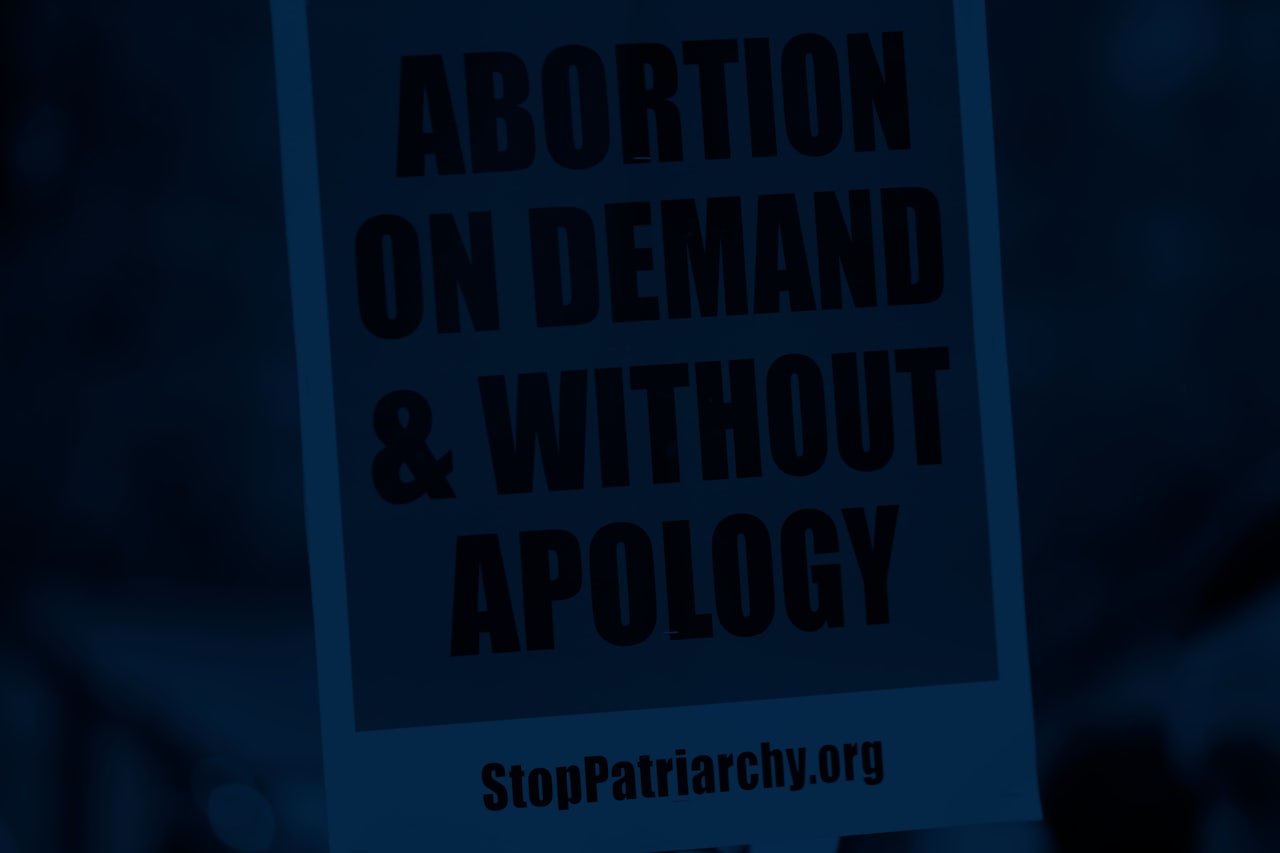Since Supreme Court Associate Justice Anthony Kennedy’s retirement announcement in June, the discussion about reproductive rights has intensified. Amid the social media discussions about the Supreme Court, and the importance of choice, and Roe v. Wade, emerged a common narrative in support of abortion that went: “No one is pro-abortion, but...” The conclusion to such a statement usually rounds out with something like, “...but we should all mind our own business and let people make their own choices about their health.” And while the latter part of this argument is a message we can all get behind, the first part is a problem.
While the pro-choice movement has long been conditioned to talk in metered ways about abortion, saying “no one is pro-abortion” is patently inaccurate. Let’s be straight — many, many people are pro-abortion, simply because we don’t view abortion as anything more than necessary health care.
Even though the anti-abortion movement asserts that a majority of people regret their abortions, studies do not back that up. A 2015 study tracking long-term emotional responses to abortion found that while those who intended to be pregnant experienced poorer emotional outcomes after an abortion, the vast majority felt abortion was the right decision in both the short-term and over the next three years.
In recent memory, the Shout Your Abortion movement has done some necessary and important work to break down stigma around abortion. People who have been spurred through Shout Your Abortion to share their abortion stories online and in person work to clarify that, no matter the reason a person has an abortion, all reasons are valid and no one deserves to be judged.
Still, predictably, many of the people who share their experiences with abortion are not only judged, but even threatened — some to the point that that they no longer felt safe being in their homes. And that’s long been a familiar narrative for people who dare talk about abortion in general, and it’s precisely the stigma around the procedure that fuels such danger.
The other day, I observed something most of us who use social media are familiar with: a guy who thought he was helping further a discussion with a well-intended but bone-headed comment. “The reality is people seldom choose abortion lightly or for purely selfish reasons,” he wrote on Facebook. What he likely meant to convey was that abortion is a personal and difficult choice, and that should be respected. The more subtle and insidious impact of his comment, however, is the inference that there are, in fact, “selfish” reasons to have an abortion, or that if the decision to have one is easy, it's somehow less respectable.
Cis men, in particular, need to be aware that their role in the abortion debate should primarily involve listening to and supporting those of us who can get pregnant. Of course, the “no-one is pro-abortion” narrative is not the sole purview of cis men. It’s repeated by people of all persuasions and genders. And while often well intended, it paints those who identify as pro-abortion as some nefarious part of what far-right extremists would call the “abortion industry.” It also feeds directly into the stigma and intimidation messages that the anti-choice crowd sends.
At its core, “no one is pro-abortion” is a message of concession. It is this kind of rhetorical ceding that makes room for the anti-choice agenda to flourish, which has resulted in the consistent whittling away of people’s ability to access abortion. Things like TRAP (Targeted Regulation of Abortion Providers) laws, fetal heartbeat bills, and the Hyde Amendment exist because of such political moralization.
So why, you might wonder, would someone be pro-abortion? Well, because abortions are necessary. They’re necessary for people whose pregnancy compromises their health, they’re necessary in cases of fetal anomalies, they’re necessary when someone can’t afford to be pregnant or care for a child, they’re necessary for people who have been raped, and they’re necessary for every reason in between. They are, quite simply, necessary for any person who is pregnant and no longer wants to be.
They're also necessary in order to save lives. Before the landmark abortion case Roe v. Wade was decided in 1973, making abortion a legal right, illegal abortions were common. According to the Guttmacher Institute, it is estimated that in the 1950s and 1960s, between 200,000 and 1.2 million illegal abortions were performed each year.
And they were deadly. In 1930, nearly 2,700 people died from abortion complications (18 percent of the maternal deaths recorded in that year). By 1965, that number dropped to just under 200, but abortions still accounted for 17 percent of maternal deaths that year.
Abortion is today considered one of the safest medical procedures. More than 650,000 legal abortions were reported to Centers for Disease Control in 2014; one in four women in America are expected to have an abortion by the time they turn 45. Major complications during first-trimester abortions — which account for 89 percent of all abortions —occur less than 0.5 percent of the time.
It’s time to stop saying that “no one is pro-abortion” or “not all abortions are selfish” and to correct people when they inadvertently fall into the trap of contextualizing or moralizing abortion. (While we’re at it, let’s also throw “only a small percentage of Planned Parenthood’s services are abortion” and “I'm pro-choice, but I’d never have an abortion myself�� into the dumpster as well.)
Shifting the abortion narrative from one that opens up space for judgment to one that singularly focuses on abortion as an essential part of health care will take commitment from everyone. We can start here by saying: “Abortion is necessary health care that saves people’s lives.”
